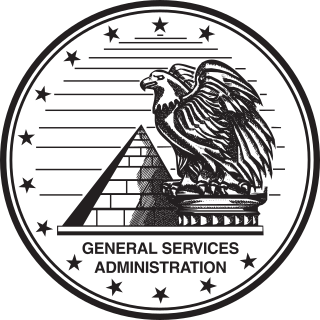A web portal is a specially designed website that brings information from diverse sources, like emails, online forums and search engines, together in a uniform way. Usually, each information source gets its dedicated area on the page for displaying information ; often, the user can configure which ones to display. Variants of portals include mashups and intranet dashboards for executives and managers. The extent to which content is displayed in a "uniform way" may depend on the intended user and the intended purpose, as well as the diversity of the content. Very often design emphasis is on a certain "metaphor" for configuring and customizing the presentation of the content and the chosen implementation framework or code libraries. In addition, the role of the user in an organization may determine which content can be added to the portal or deleted from the portal configuration.

The National Archives and Records Administration (NARA) is an independent agency of the United States government within the executive branch, charged with the preservation and documentation of government and historical records. It is also tasked with increasing public access to those documents that make up the National Archives. NARA is officially responsible for maintaining and publishing the legally authentic and authoritative copies of acts of Congress, presidential directives, and federal regulations. NARA also transmits votes of the Electoral College to Congress. It also examines Electoral College and constitutional amendment ratification documents for prima facie legal sufficiency and an authenticating signature.
E-government is the use of technological communications devices, such as computers and the Internet, to provide public services to citizens and other persons in a country or region. E-government offers new opportunities for more direct and convenient citizen access to government and for government provision of services directly to citizens.

The domain name gov is a sponsored top-level domain (sTLD) in the Domain Name System of the Internet. The name is derived from the word government, indicating its restricted use by government entities. The TLD is administered by the Cybersecurity and Infrastructure Security Agency (CISA), a component of the United States Department of Homeland Security.

The General Services Administration (GSA) is an independent agency of the United States government established in 1949 to help manage and support the basic functioning of federal agencies. GSA supplies products and communications for U.S. government offices, provides transportation and office space to federal employees, and develops government-wide cost-minimizing policies and other management tasks.
The Australian Communications and Media Authority (ACMA) is an Australian government statutory authority within the Communications portfolio. ACMA was formed on 1 July 2005 with the merger of the Australian Broadcasting Authority and the Australian Communications Authority.

E-democracy, also known as digital democracy or Internet democracy, uses information and communication technology (ICT) in political and governance processes. The term is credited to digital activist Steven Clift. By using 21st-century ICT, e-democracy seeks to enhance democracy, including aspects like civic technology and E-government. Proponents argue that by promoting transparency in decision-making processes, e-democracy can empower all citizens to observe and understand the proceedings. Also, if they possess overlooked data, perspectives, or opinions, they can contribute meaningfully. This contribution extends beyond mere informal disconnected debate; it facilitates citizen engagement in the proposal, development, and actual creation of a country's laws. In this way, e-democracy has the potential to incorporate crowdsourced analysis more directly into the policy-making process.

Directgov was the British government's digital service for people in the United Kingdom, which from 2004 provided a single point of access to public sector information and services. The site's portal was replaced by the new GOV.UK website on 17 October 2012, although migration of all services to GOV.UK branding took several years.
USA.gov is the official web portal of the United States federal government. It is designed to improve the public's interaction with the United States government by quickly directing website visitors to the services or information they are seeking, and by inviting the public to share ideas to improve government. USA.gov links to every federal agency and to state, local, and tribal governments, and is the most comprehensive site in—and about—the United States government. While the primary target audience of USA.gov is the American public, about 25 percent of USA.gov's visitors come from outside the United States.

Internet police is a generic term for police and government agencies, departments and other organizations in charge of policing the Internet in a number of countries. The major purposes of Internet police, depending on the state, are fighting cybercrime, as well as censorship and propaganda.
In the United States, internet censorship is the suppression of information published or viewed on the Internet in the United States. The First Amendment of the United States Constitution protects freedom of speech and expression against federal, state, and local government censorship.

Vivek Kundra is a former American administrator who served as the first chief information officer of the United States from March, 2009 to August, 2011 under President Barack Obama. He is currently the chief operating officer at Sprinklr, a provider of enterprise customer experience management software based in NYC. He was previously a visiting Fellow at Harvard University.

The federal Chief Information Officer of the United States, also known as the United States Chief Information Officer, is the administrator of the Office of Electronic Government, or the Office of the Federal CIO (OFCIO), which is part of the Office of Management and Budget. The President appoints the Federal CIO. The appointee does not require Senate confirmation. It was created by the E-Government Act of 2002.
Website governance is an organization's structure of staff and the technical systems, policies and procedures to maintain and manage a website. Website governance applies to both Internet and Intranet sites.

Steven VanRoekel was named the Office of Management and Budget's Acting Deputy Director for Management on May 21, 2013. He was also the second Federal Chief Information Officer of the United States and previously worked for the Federal Communications Commission, the United States Agency for International Development, and at Microsoft.

gov.uk is a United Kingdom public sector information website, created by the Government Digital Service to provide a single point of access to HM Government services. The site launched as a beta on 31 January 2012, following on from the AlphaGov project. The website uses a modified digital version of the Transport typeface called New Transport. It officially replaced Directgov and the online services of Business Link on 17 October 2012. As of January 2023, GOV.UK is the second-most-used government website worldwide, after Russia's Gosuslugi.

The Presidential Innovation Fellows program is a competitive fellowship program that pairs top innovators from the private sector, non-profits, and academia with top innovators in government to collaborate on solutions that aim to deliver significant results in months, not years. It was established in 2012 and has operated continuously since then. The program focuses on generating measurable results, using innovation techniques from private industry such as Lean Startup, Design Thinking, and Agile Development.

MediaSmarts is a Canadian non-profit organization and registered charity based in Ottawa, Ontario, that focuses on digital and media literacy programs and resources. In particular, the organization promotes critical thinking via educational resources and analyzes the content of various types of mass media.

18F is a digital services agency within the Technology Transformation Services department of the General Services Administration (GSA) of the United States Government. Their purpose is to deliver digital services and technology products.
Vladlen David Zvenyach is an American government technology executive, author, lawyer, and professor. From 2021 to 2022, he served in the Biden Administration as the Director of the Technology Transformation Services and the Deputy of the Federal Acquisition Service in the U.S. General Services Administration. Zvenyach's prior roles in public service included serving was the Executive Director of the federal innovation organization 18F and the Acting Assistant Commissioner, Office of Systems Management within the Federal Acquisition Service. In his role at 18F, he pioneered new methods of government procurement. Zvenyach is also the author of Coding for Lawyers.












